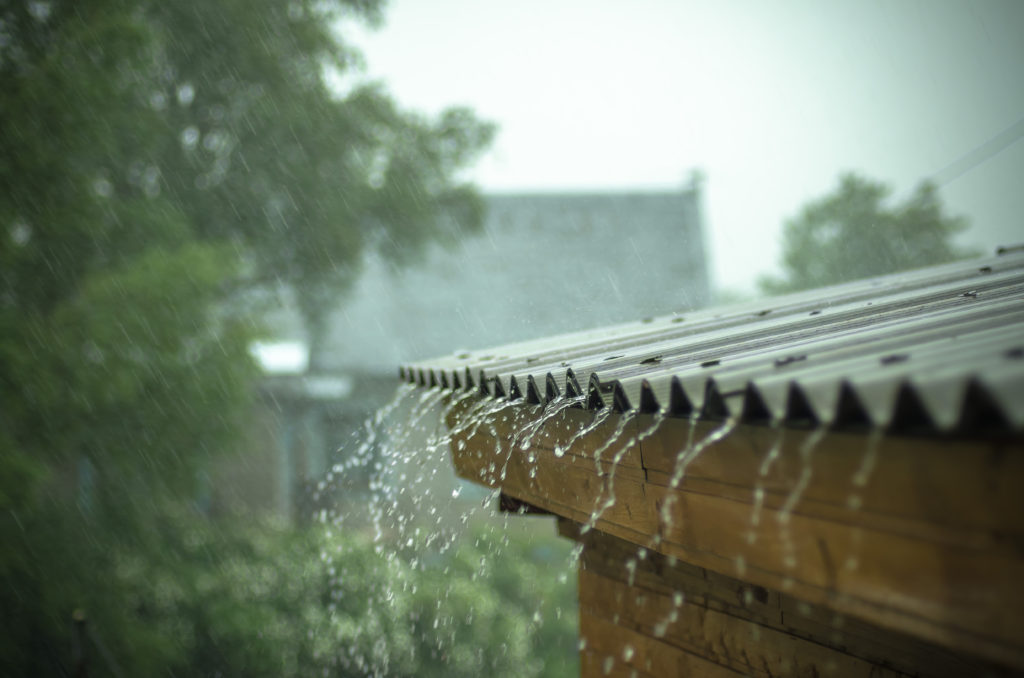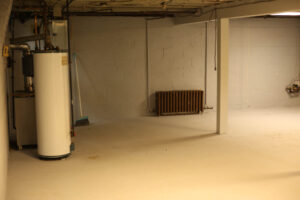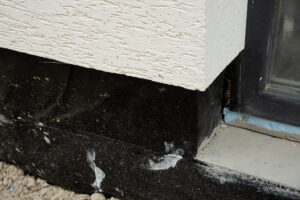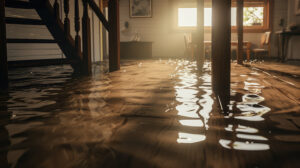
Northern New Jersey has experienced above-average rainfall this year. If your home has been in the middle of these storms, the sheer amount of water soaking into the ground outside your home swells the soil.
As the ground containing your foundation swells, pressure against your foundation walls increases. More water means more pressure, which can result in foundation cracks or leaks in your foundation.
Here’s what you can do to prevent foundation damage from happening.
Install Gutters that Route Water Properly
Part of the problem is gutters that direct water immediately to problem points around your home, which is where you don’t want it. You may want to look into a downspout extension, which might only need to be four feet in length to work effectively.
Splash blocks can also help by pushing water further away from the gutter spout. It’s important to direct both the block and water downslope to avoid foundation leaks.
Landscape or Irrigate Your Yard
Moving water away from your home is crucial. If you don’t want a downspout extension, you can aim your gutters into channels that then serve the same purpose. Channels that extend 10 feet or more are the goals. Always make sure that the water will be running downslope of your home and foundation.
Additionally, if you can aim the water into an area that receives sunlight regularly, water will evaporate faster than it would in the shadow of your home or trees. This prevents it from soaking deep into the earth and cracking your foundation.
What is Foundation Settlement?
Foundation settlement occurs when the earth under or around your foundation begins to shift. This creates gaps in the soil that could cause your home to sink, tilt, or become unbalanced. When building any foundation, some settlement is always expected. Foundation contractors work with this in mind, allowing for some shifting to occur without putting your home at risk. Many outside factors can increase the shifting of the earth, which is what creates the potential for damage.
What Causes Foundation Settlement?
Settlement in your foundation is not something always caused by human error. It is a natural result of soil shifting and adjusting to the addition of your home’s foundation. As such, the causes of serious foundation settlement can be:
Season
Seasonal weather contributes greatly to foundation settlement. Foundations constructed during rainy seasons might experience unexpected settlement once the earth has a chance to dry throughout. Conversely, foundations built during dry, summer months will undergo more pressure from the soil when it swells with moisture.
Soil Type
In Austin, there are several types of soil that might affect your foundation after construction. Some soils settle differently than others and are affected differently by moisture. Foundation contractors are experienced in building to the soil needs of your home and take the unique qualities of each type into account.
Time
The longer your home has been in place, the less foundation settlement will occur. Newer houses are at the highest risk for foundation settlement. However, plants also have longer to grow, which might encroach on your foundation.
Tree or Plant Growth
Trees are true forces of nature. As roots spread deeper and wider in the earth, they displace the soil around them. This may directly affect your foundation or might create gaps in the soil, which would cause your foundation to shift as well.
What to Look Out For
If you encounter any of the following, you might want to hire a foundation inspector to check for foundation settlement:
- Doors are sticking, or swinging open/closed by themselves
- Drywall or ceiling cracks
- Uneven or unlevel floors
- Wobbly furniture (this is often a sign of uneven floors) If your foundation feels unsteady or you’re concerned that you’ve had improper foundation settlement and you live in New Jersey, contact Dry Master to send an expert foundation contractor to your home.



